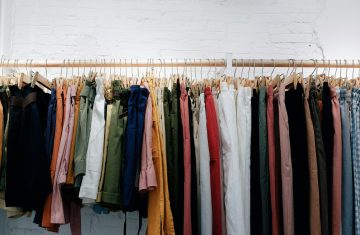China dominates the global fishing gear industry, manufacturing 80 % of the world’s fishing equipment. Weihai, situated in Shandong Province, stands as the epicentre of this industry, boasting the largest production base that supplies nearly half of the world’s fishing gear. Despite China’s significant contribution to international fishing brands through its exports, the majority of these products tend to be low-end in nature.
Cui Tianshi, the founder and CEO of Poseidon, hails from Weihai, where his upbringing instilled in him a deep understanding of the fishing gear industry. Upon relocating to the United States for his studies, Tianshi was exposed to a vastly different fishing tackle market. “In the United States, fishing ranks as a national pastime, second only to running. It appeals to a wide demographic, with women constituting 40% of enthusiasts,” remarked Tianshi. The widespread popularity of fishing in the United States underscores its status as a mature sport, giving rise to a substantial demand within the industrial chain.
Data released by the U.S. Fish and Wildlife Service shows that from 2011 to 2021, 56 million licensed anglers, directly driving $54 billion in spending on fishing supplies, which in turn led to the development of hotel tourism, recreational fishing boat manufacturing, the creation of more than 820,000 jobs, and a total economic contribution of up to $115 billion.
A myriad of fishing gear brands and a variety of angling competitions presented an entrepreneurial opportunity for him, leading to the inception of “KastKing” (Chinese name: 卡斯丁), with Poseidon as its parent company. He was unwilling to adhere to the conventional approach of OEM manufacturing dominant in Weihai for fishing gear production. Rather, he aspired to establish a fishing gear brand, aiming to carve out a niche in the thriving North American angling market.
However, crafting a fishing gear brand, particularly from the standpoint of technological breakthroughs and supply chain production, was no easy feat. KastKing was founded in 2013, with the initial three years dedicated to the establishment of an American online fishing gear emporium by Cui Tianshi. He delved into the fishing gear supply chain, not only retailing other traditional brands but also nurturing proprietary brands. By 2016, Cui Tianshi had relocated to Shenzhen, where cross-border e-commerce was flourishing. Marvelling at the distinct market dynamics and strategies, he embarked on the Amazon platform. Leveraging the groundwork laid in the American market, KastKing swiftly ascended to become a premier fishing gear brand on Amazon.
From 2018 to 2023, KastKing witnessed consecutive rapid growth, culminating in last year’s sales surpassing 500 million RMB, making it the top-selling online fishing gear brand in North America. Recently, Poseidon concluded an A1 round of financing, securing 50 million RMB, with investments from Ray Capital, Path Capital, and industry expert Qin Xinglong, while Star Horizon Capital assumed the role of exclusive long-term financial advisor. The funds will be allocated towards constructing medium to high-end factories.
According to Cui Tianshi, once KastKing’s fishing gear products achieve comprehensive technological breakthroughs, establishing in-house factories will not only stabilize production but also enhance the capacity for medium to high-end products, supporting the rapid growth across online and offline channels.
Breaking Through the Technological Barrier in Fishing Reels
KastKing’s array of fishing gear products predominantly revolves around LuYa fishing gear. While loyal fishing has garnered some recognition in China in recent years, it remains a relatively niche pursuit. Conversely, North America boasts a rich fishing heritage, owing to its abundant waterways and diverse fish species, accompanied by a plethora of angling competitions. LuYa fishing, with its competitive edge, has emerged as the predominant angling method in North America.
LuYa fishing entails utilizing “lures” to replicate the movements of small, vulnerable creatures in the water, enticing naturally aggressive fish to strike, thereby taking the bait. To animate the lure in the water, anglers must continuously manoeuvre the rod, manipulate the line, and oscillate the rod. This process scrutinizes anglers’ capabilities across various dimensions. They must not only discern and select the appropriate bait based on weather conditions, water depth, quality, sunlight direction, and other factors but also experiment with different line retrieval techniques based on water currents. This ensures that the intricately designed lures, crafted with exceptional biomimetic technology, emulate the struggling, fleeing, spasming, and other behaviours desired by the target fish, thus enticing them to attack. The competitive nature and interactive dynamics with the fish often engender a profound addiction among enthusiasts.
Categorized by product type, the global fishing gear market encompasses rods, fishing reels and components, fishing lines, lures, fillets, and terminal tackle. Seasoned fishing aficionados, when embarking on a fishing trip, typically carry not just one set of equipment but multiple sets, each tailored to different categories of rods, fishing reels, and lines.
Cai Ning, Managing Partner of Point of Light Capital, remarked: Fishing embodies strong social and communicative attributes, with LuYa, characterized by athleticism and higher technical demands, increasingly captivating younger demographics, thus witnessing a gradual global penetration rate surge. The advancement of LuYa fishing challenges one’s physical prowess, mental fortitude, manoeuvring skills, geographical acumen, biological understanding, and climatological awareness. Moreover, the research, development, and production of LuYa equipment intersect multiple disciplines, encompassing, but not limited to, dynamics, aerodynamics, material science, electromagnetism, and mechanical engineering.
Fishing reels constitute the cornerstone category of KastKing’s fishing gear. The pivotal role of the fishing reel lies in providing storage and control for the fishing line on the rod. When an angler hooks a fish, the fishing reel aids in controlling its movements by adjusting resistance and managing line release or retrieval. This effectively engages in combat with the fish, preventing escape or rod breakage. The design and performance of the fishing reel directly influence the likelihood of fishing success. The toothed disc within the fishing reel plays a crucial role, responsible for power transmission and rotational force. For years, minuscule-toothed discs have been a stumbling block for Chinese fishing reel manufacturers.
“Prior to 2018, Chinese manufacturers were unable to independently design and produce fishing reel-toothed discs. Instead, they procured moulded copper moulds from Japan and produced low-end, heavy, and weak-strength toothed discs through zinc alloy die-casting. Attempts at reverse engineering for learning and design were hampered by micron-level tolerances, almost entirely impeding progress. This technological constraint severely curtailed material selection and structural design possibilities,” disclosed Cui Tianshi. Through collaborative design endeavours with university institutions, KastKing achieved independent design and production of gear discs in 2020. Leveraging cold forging and pressing gear disc technology, the company managed to reduce fishing reel weight while enhancing strength, smoothness, and tactile feedback. “We should be the sole company, aside from Japan, capable of producing cold-forged and pressed-toothed discs for fishing reels. Overcoming the toothed disc technological hurdles will pave the way for new breakthroughs in fishing reel variety, performance, and structural design,” continued Cui Tianshi.
In these years of achieving annual sales doubling for KastKing, there has been a continuous increase in research and development investment in fishing reel products. Over the past three years, there have been numerous technological breakthroughs in reel speed, weight, and overall performance, with several products undergoing three to four years of research and development before launch.
“Consumers typically recall the pioneering brand. Thus, for us, transcending past limitations and potentially even pioneering the category is imperative,” elucidated Cui Tianshi. “KastKing’s latest intelligent fishing reel incorporates our proprietary adaptive braking technology, effectively averting line backlash.” Line backlash is a common issue in fishing and a notable pain point in reel usage. In addition to enhancing line strength, abrasion resistance, and tensile strength, traditional solutions for fishing reels include built-in mechanical brakes and magnetic beans to provide counteracting force to slow down line movement gradually. However, this method requires precision thumb control by the angler.
KastKing’s intelligent fishing reel products, in addition to featuring an internal electromagnetic braking system, introduce a structural design breakthrough with variable outlet holes—swing guides—overcoming Japanese technological barriers. Moreover, the fishing reel achieves magnesium alloy plating for the first time. Furthermore, this reel can read and analyze casting and reeling speed and distance to enhance fishing success rates.
In Cai Ning’s estimation, leveraging breakthrough material technology to offer consumers more scientifically and technologically advanced yet cost-effective products is poised to lead the industry through technological innovation and self-researched intelligent fishing reel development.
As of today, 60% of KastKing’s sales originate from online platforms. Since establishing an Amazon store, its sales have seen a rapid surge. However, Cui Tianshi emphasizes that KastKing cannot simply be classified as a cross-border e-commerce entity; from the very beginning, the company’s ambition has been to establish itself as a premier fishing gear brand.
During its expansion into the American market, meticulous attention was paid to Cui Tianshi for brand promotion and product presentation. “When we initially embarked on brand promotion, we scrutinized every detail. For instance, even the most fundamental product descriptions had to be devoid of any Chinglish, eliminating any trace of Chinese-style English. Using a foreign language and entering a local market demands flawless grammar and appropriate language usage. Otherwise, consumers might perceive the brand as unprofessional and be unwilling to pay the right price.”
Fishing, with its innate outdoor sports essence, enables KastKing to concentrate on the nuances of social media marketing, setting it apart from other outbound enterprises. KastKing adeptly capitalizes on opportunities to make its presence felt in various fishing competitions.
In the birthplace of LuYa fishing in the United States, any mention of “fishing competitions” almost invariably alludes to competitive sports utilizing the LuYa method. Across the United States, there exists a myriad of fishing leagues and organizations catering to different waters and fish species. Ranging from nationwide leagues such as Major League Fishing (MLF) and the National Professional Fishing League (NPFL) to state-specific fishing leagues and organizations, there are several venerable traditional competitive fishing events. MLF even hosts high school and college fishing leagues, consistently funnelling young, talented anglers into top professional leagues. Fishing competitions offer ample publicity opportunities for fishing gear sponsors, while professional anglers can secure physical sponsorships such as fishing gear, apparel, and boats. Some well-known anglers even secure naming sponsorships amounting to tens of thousands of dollars annually.
In addition to sponsoring fishing competitions and professional anglers, KastKing has cultivated fan communities and brand ambassadors in all states across the United States, frequently organizing fishing-related activities in different states. The United States also regularly hosts numerous fishing-related exhibitions, with KastKing investing hundreds of thousands of dollars to participate in exhibitions nationwide. “In the past, online efforts may have yielded positive results, with likes and photo shares, but establishing genuine connections with consumers necessitates participation in offline activities. Face-to-face communication is unparalleled. Hosting fishing events or public welfare activities allows consumers to experience our products firsthand and provides real-time feedback, shaping brand reputation,” Cui Tianshi said.
Tian Tian, founder of Zhongqin Xinglong Investment Holding Co., Ltd., believes that outbound capabilities are crucial for the future success of Chinese consumer goods companies. The fishing gear industry presents vast opportunities in the North American market. Leveraging China’s supply chain advantages while innovating independently, Poseidon, as a domestic enterprise, has entered the mid-to-high price range of North American fishing gear.
It’s noteworthy that offline channels have traditionally been the primary sales avenues for fishing gear brands. KastKing has also ventured into retail giants like Walmart and some speciality fishing tackle stores. However, the reason behind KastKing’s lower offline sales proportion compared to online is attributed to constraints faced as a new brand, including limited production capacity, funding, and brand influence. “The space for offline sales is constrained. Choosing you means rejecting others, so your product must excel,” Cui Tianshi emphasized. Apart from product excellence, establishing offline channels demands substantial financial resources, encompassing store space, inventory management, and production capacity.
Moreover, after KastKing’s fishing gear achieves technological breakthroughs, new product lines pose production challenges for OEM factories, leading to unstable yield rates. This is rooted in the historical focus of Chinese fishing gear production on low-to-mid-range products, compounded by the relatively limited availability of factories within the fishing gear sector in China. So self-built factories are imperative for Poseidon at present. The company aims to surmount manufacturing limitations through its own facilities, facilitating the seamless integration of cutting-edge technology and enabling independent control of core materials and components to enhance production quality.
Wu Zhiwei, founder of Track Capital, contends that traditional domestic fishing gear companies have historically neglected brand building or employed inadequate strategies, resulting in comparatively weak brand presence for Chinese brands. KastKing not only showcases remarkable prowess in product innovation but also exhibits a global perspective and strategic brand thinking.
Looking ahead to 2024, Poseidon aspires to surpass $100 million in sales with the establishment of its own factory. Given that the fishing market where Poseidon operates has already surpassed $40 billion in value in North America, the prospects are undeniably promising.




